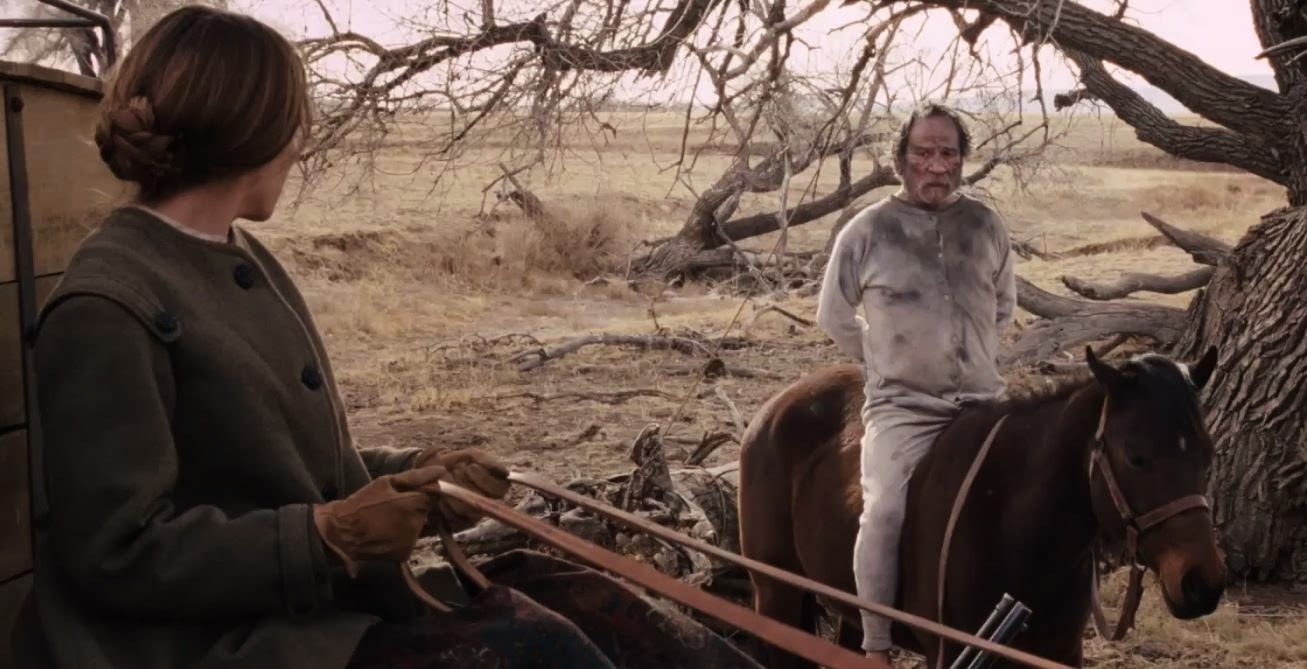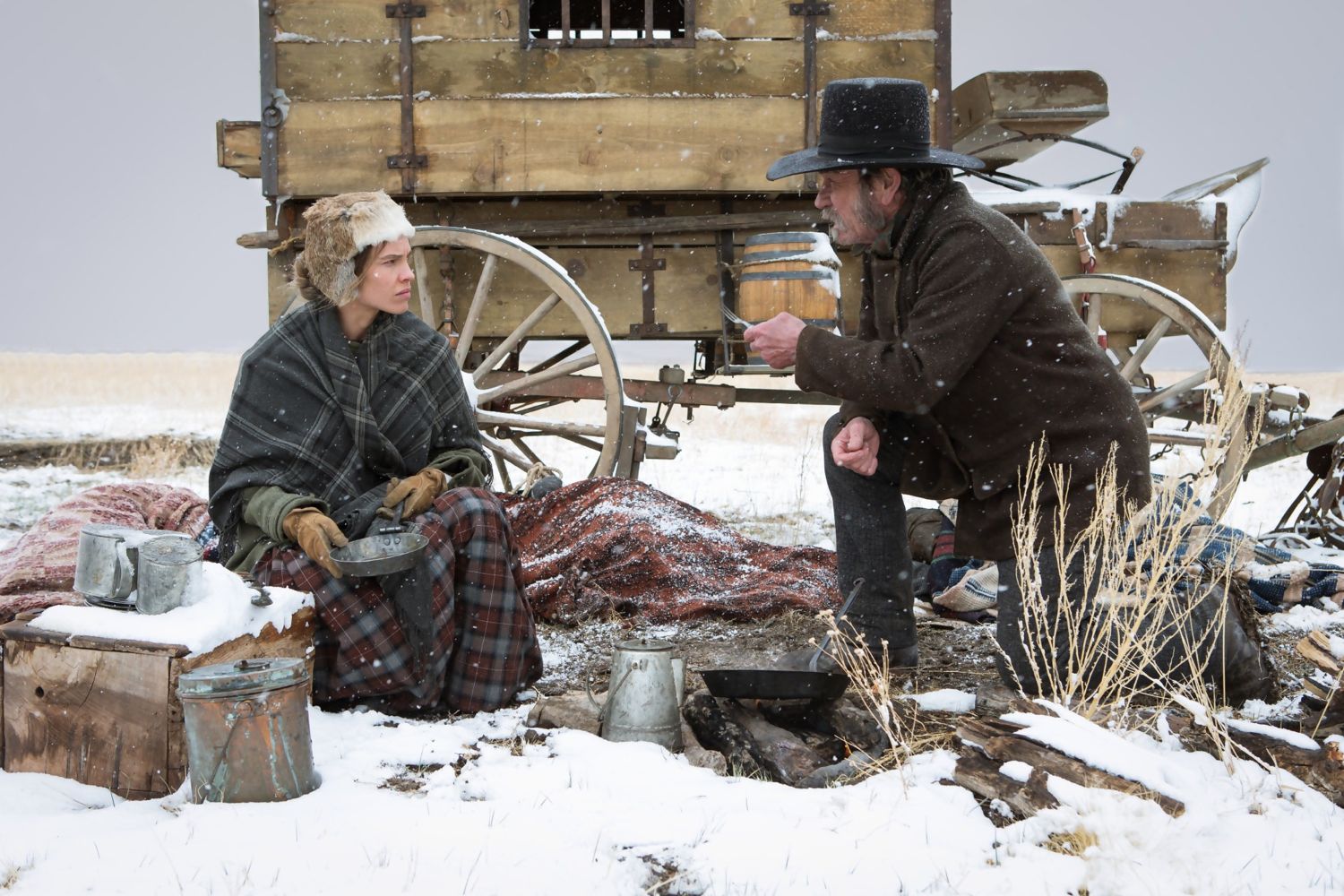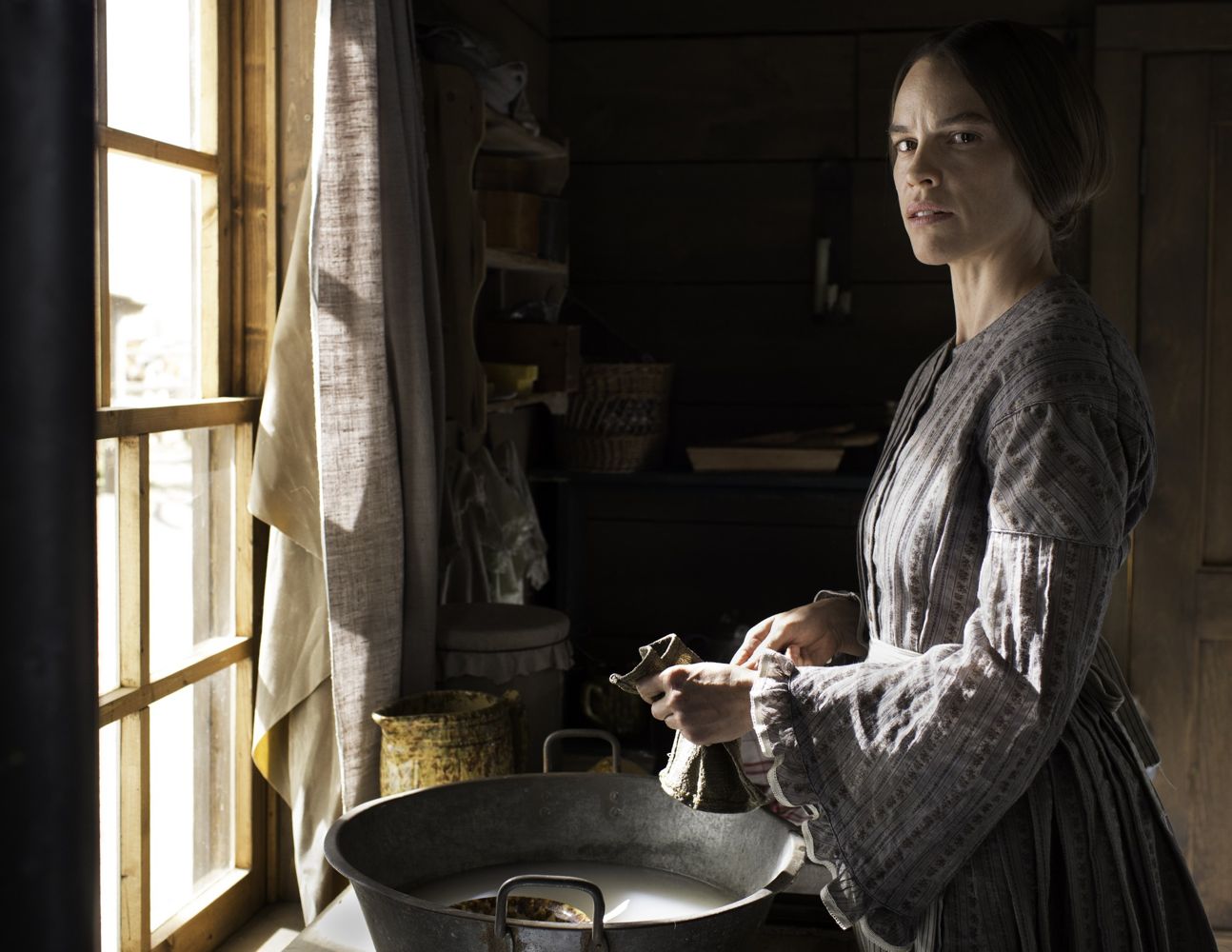Not many people are heading out to see Tommy Lee Jones’s The Homesman and it’s really hard to imagine why anyone would want to see it, just as it’s hard to imagine why anyone would want to make such a film.
At its center are two fascinating, eccentric, oddly appealing characters who are, when we meet them, desperate, isolated, lost. They forge an inspiring bond between them then part, even more desperate, isolated and lost than they were when they first met up.
This is not a story — it is a monotonous non sequitur that attempts and fails to glamorize despair. Many puerile storytellers think that glamorizing despair constitutes a form of high art — profoundly mature, courageously realistic. It does not.
Jones has said the film is about American imperialism, which I guess means that the hardships faced by Western pioneers were some sort of retribution for the hubris of belief in Manifest Destiny, but it’s difficult to discern how this idea relates to the drama of the film in any but the most abstract and artificial way.
In any case, trying to sell this sort of arty nihilism as a Western (or social criticism or anything else, really) constitutes a formula for commercial disaster — richly deserved commercial disaster. A terrific premise for a story, some fine cinematography and some brilliant acting, including one of the best performances Jones has ever given, are wasted in the process.
Click on the images to enlarge.





